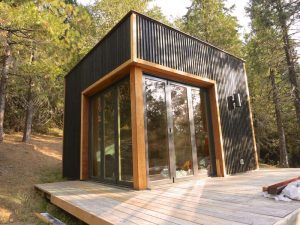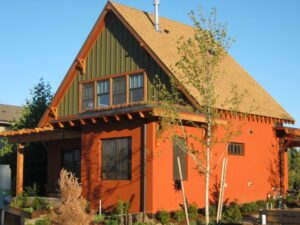Many people overlook the importance of indoor air quality to their health and comfort in their home. A home that is damp can lead to a constant chilly feeling. IT can also increase allergies and general illness and a sense of feeling unwell. Indoor air quality is so important to people’s health that the Environmental Protection Agency makes it clear that pollutants commonly found in indoor air can cause many harmful effects.
Many folks are sensitive to molds, off-gassing materials, and contaminants (smoke). Also, particles (rodent droppings or cockroach allergens – yuck!) found in poor indoor air. Others have broader environmental sensitivity which can be worsened by exposure to poor indoor air. A common source of off-gassing or contaminants can be plywoods, laminates, or particle or gypsum board. Building with Faswall can help eliminate a whole host of problematic materials. The importance of indoor air quality can’t be overstated, especially for people who live with respiratory issues and sensitivities. Can the right building materials improve indoor air quality? Yes, they can!
What Are The Main Factors That Affect Indoor Air Quality?
The main factors that affect indoor air quality have to do with sources of pollutants that contaminate their air. Another factor is whether there is enough fresh air in the building or home to dilute the pollutants. Poor air can enter a home from outside the building, such as vehicle exhaust. Industrial pollutants, or air contaminated with pollen, dust, or fungal spores can enter. Bad indoor air can also enter a home from a poorly ventilated, moldy and musty crawl space or basement under the home.
An unfinished basement or crawlspace can be a source of radon gas from soil. Moisture or standing water under a home promotes excess microbial growth, and those particles can enter a home. Approximately 50% of the air on the first floor of your home comes from your crawl space — this fact alone should underscore the importance of indoor air quality. Who wants to breathe damp, moldy, musty air from a basement?
Modern homes are increasingly airtight. Technology has improved water and vapor barriers that prevent humid outdoor air and water from entering a home. At the same time, have an increased need for access to fresh air. The amount of toxins that can build up in a home from all of the materials used in flooring and finishings can add up in an astonishing way. When the system is too tight and doesn’t allow fresh air to enter, unhealthy indoor air can build up.
What Are The Symptoms Of Poor Indoor Air Quality?
The symptoms of poor indoor air quality can easily be mistaken for a cold or other illness. Sometimes, people with poor indoor air just think they are sick a lot. In fact, their symptoms of irritated eyes, an itchy throat, an itchy nose, headaches, dizziness, or fatigue are from the air they’re breathing. After constant exposure to irritants in bad air, many people can develop allergies or asthma. Or, if they already had allergies or asthma, their symptoms worsen. Other long-term health effects can turn into respiratory diseases, heart disease, and cancer.
It may take one individual years to develop issues. But, someone else who is more sensitive can develop problems right away. Each individual reacts differently to indoor air quality, which is why the importance of indoor air quality can’t be ignored.
What Building Materials Are Best For Indoor Air Quality?
Faswall is a go to for creating a home or building with outstanding indoor air quality. These blocks are manufactured from a combination of recycled wood and cement. They’re ideal as a wall material for people who understand the importance of indoor air quality because they are made with no glues, plastics, additives, or other harmful materials — there’s no off-gassing. They don’t promote mold growth because they don’t hold on to moisture. You can finish Faswall blocks on the exterior and interior in just about any way you choose. They are an ideal surface to be finished with stucco or plaster because there’s not a lot of prep work to do this and the plaster or stucco adheres right to the Faswall surface.
Some of our clients are people who chose Faswall specifically because they had chemical or environmental sensitivities and they recognized the need for their home to have good indoor air. If you too are concerned about the air you breathe and want to see how the right building materials improve indoor air quality, get in touch with us. The Faswall experts will be happy to have a chat with you about how non-toxic and breathable Faswall blocks contribute to healthy indoor air.









